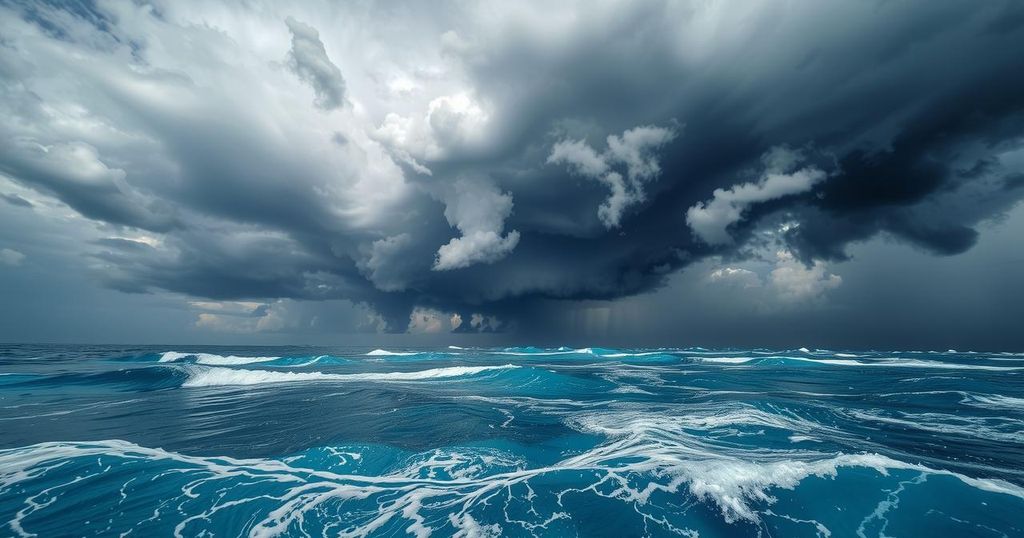Tropical Storm Dikeledi Approaches Mozambique After Leaving Casualties in Madagascar

Tropical Storm Dikeledi is heading toward Mozambique after causing three fatalities in Madagascar. The storm, which downgraded from cyclone status, has prompted red alert warnings in Mayotte due to severe flooding. Inhabitants of the affected regions face continued risks as authorities mobilize resources to manage the aftermath of this and previous cyclones, underscoring the vulnerability of these communities.
Tropical Storm Dikeledi is currently advancing towards Mozambique after causing fatalities and significant damage in Madagascar and Mayotte. Initially classified as a cyclone, Dikeledi led to the death of three individuals in Madagascar due to severe wind and rain. As it weakened to a tropical storm, it came perilously close to Mayotte, prompting local authorities to maintain a red alert due to flooding and potential landslides.
The region remains in turmoil following the catastrophic impact of Cyclone Chido, which resulted in at least 39 deaths in Mayotte and significant infrastructural destruction. Dikeledi’s trajectory indicates it will gain strength over the warm waters of the Mozambique Channel, posing serious threats to the coastal communities of Mozambique, particularly in the Nampula region, where destructive winds and heavy rainfall are anticipated.
In Mayotte, inhabitants have been confined due to the imposed travel restrictions, although some residents have cautiously ventured outdoors amidst the adverse weather to attend to their homes. Emergency services report extensive damage within the archipelago, with numerous houses washed away and villages inundated. Authorities have mobilized over 4,000 personnel, including police and military, to assist in crisis management and set up temporary shelters for displaced individuals.
As Dikeledi nears Mozambique, weather forecasts warn that conditions will deteriorate further, necessitating vigilance and preparedness among the affected populations in anticipation of improved action plans for disaster response. Overall, this severe weather event underscores the ongoing vulnerabilities faced by communities in this cyclone-prone area of the Indian Ocean, exacerbated by the effects of climate change.
The Indian Ocean cyclone season, primarily occurring between November and March, has gained heightened attention due to increasing storm intensity linked to climate change. Recent cyclones, such as Chido and now Dikeledi, have highlighted the catastrophic impact of such weather phenomena on vulnerable regions like Madagascar and Mayotte, which often struggle with inadequate infrastructure and disaster management resources. With ocean surface temperatures nearing 30 degrees Celsius, storms in this region are anticipated to become more frequent and severe, prompting calls for improved preparation and resilience strategies.
Dikeledi’s approach to Mozambique raises significant concerns for the well-being of several coastal regions still grappling with the aftermath of previous cyclones. The tragic losses endured in Madagascar and ongoing challenges in Mayotte amplify the urgency for comprehensive disaster preparedness and response frameworks. As authorities brace for further storm developments, it highlights the critical need for international cooperation and support in mitigating the impacts of extreme weather events exacerbated by climate change.
Original Source: www.arabnews.com







